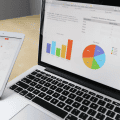Technological advancements are shaping the financial industry today. Open banking, as an innovation, enables individuals to share information about their finances with third-party providers. It can lead to a paradigm shift that may redefine how you handle your money and provide immense control and opportunities for economic development.
Table of Contents
But What Is Open Banking?
It’s important first to understand what is open banking. How does it allow customers to share their financial data with trusted third parties? This could include transaction history, account balance, and payment details. Individuals who do this gain access to a wide array of innovative financial solutions and tools that can improve personal finance situations. It’s like giving your bank accounts an e-facelift so that you can see what you didn’t see before and control it better. Essentially, open banking eliminates the traditional barriers among banks, enabling customers to have more authority over their financial information while also being able to choose from a wider range of available financial products provided by non-traditional banks.
Budgeting And Analysis Of Expenses

Enhanced budgeting and spending analysis are some immediate effects brought about by open banking. By linking all your accounts together, you can see how all these affect your income and expenses overall. Real-time updates identify spending habits, set achievable budgets, and track progress made toward them. For instance, advanced budgeting tools may help users understand where their money is going right or wrong, automatically categorizing expenditures accordingly, thus allowing adjustments through the elimination of unnecessary expenditures, such as frequent restaurant visits when planning for holidays.
Personalized Financial Advisory Services
Advanced speech-enabled platforms that give personalized advice on finances are emerging based on open banking frameworks. These platforms analyze personal finance data to provide customized recommendations depending on one’s goals and circumstances. Whether it’s saving for a home, planning for retirement, or managing debt, personalized advice can be crucial in making good choices concerning individual economic objectives. From investment guidance to insurance coverage, these platforms create an alignment between a person’s financial plan and what they want to achieve in life.
Credit Rating and Borrowing
Open banking is changing how credit scores are calculated. Previous credit score systems were based on factors that were often very limited and usually led to incorrect conclusions. Open banking allows lenders to access more information about your finances than ever before, helping them to better determine if you are a good borrower. Consequently, this leads to improved credit ratings, offering borrowers better loan terms. In addition, factors such as spending behavior and continuity of earnings should be considered when granting loans, enabling the lender to make more informed decisions rather than just relying on traditional credit history, thus benefiting both the lender and borrower.
Smooth Payments And Money Transfers
It is easier to make payments through open banking. Just share your account details with approved merchants so that you can easily pay securely without using customary means of payment. Additionally, moving money from one account to another becomes easy and quick, simplifying financial management. This way, when it comes to manual payment methods, both time and expenses are reduced, thus minimizing the chances of errors during manual payments. Furthermore, open banking may facilitate faster invoice processing, helping avoid late bills and thereby improving your credit rating.
The Future of Financial Services
Open banking is a relatively new concept. But it has a great potential. In the future, many more innovative financial products and services are likely to be created. Open banking has brought about a revolution in finance by opening up possibilities for managing money in areas such as fraud prevention in transactions and portfolio creation. This new era of finance will help individuals control their own destinies and achieve their desired financial objectives. Therefore, open banking could result in an accessible and inclusive financial system that enables people to make better-informed choices regarding their finances, thereby boosting economic resilience.



















